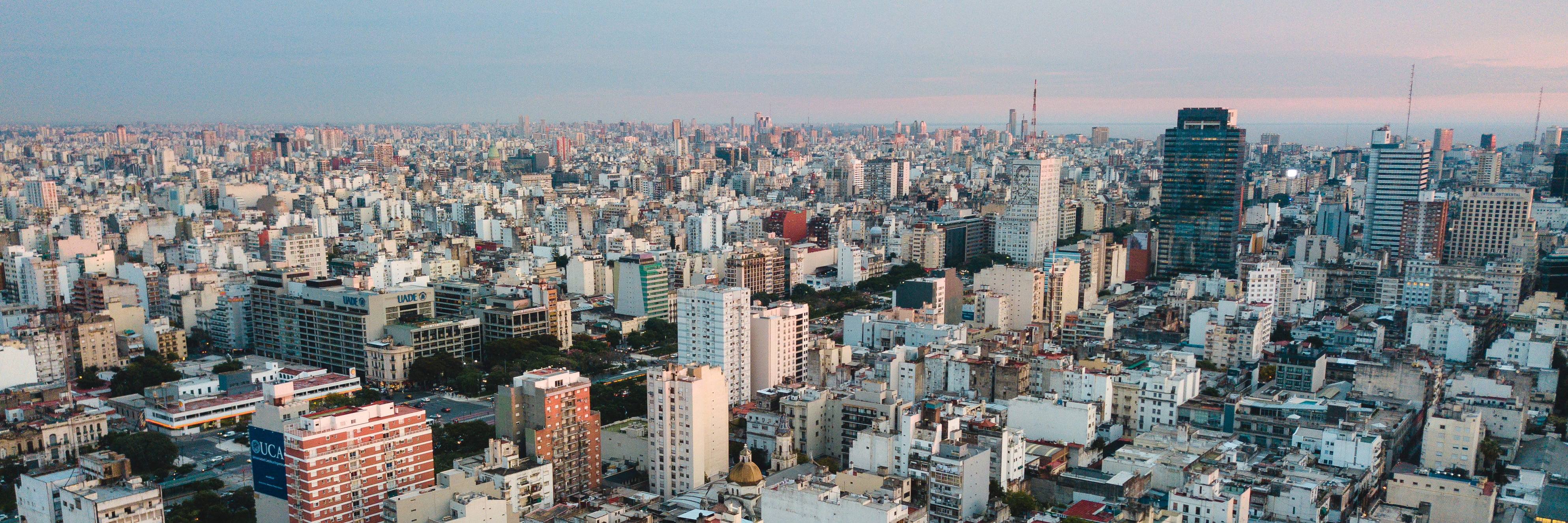Laura Suter-Dicks Bericht über ihr Sabbatical an der Fundación Instituto Leloir in Buenos Aires
Zwischen März und Juni 2023 war Laura an der Fundación Instituto Leloir in Buenos Aires Teil der Forschungsgruppe von Eduardo Castaño und Laura Morelli, die sich mit der Alterung des Gehirns und neurodegenerativen Erkrankungen befasste. Der Schwerpunkt lag dabei auf zellulären Mechanismen im Zusammenhang mit der Alzheimer-Krankheit. Darüber hinaus nahm Laura als Referentin und Teilnehmerin an den institutseigenen Forschungsseminaren teil und knüpfte wertvolle Kontakte zu erstklassigen Expert*innen aus Argentinien und dem internationalen Umfeld.
«Ich habe ein viermonatiges Sabbatical in Argentinien verbracht, wo ich als Gastwissenschaftlerin an der Fundación Instituto Leloir (FIL) in Buenos Aires hervorragend aufgenommen wurde. Die FIL wurde vom Nobelpreisträger Federico Leloir (1906–1987) gegründet, der 1970 den Nobelpreis für Chemie für seine Entdeckung der Stoffwechselwege erhielt, über die Kohlenhydrate synthetisiert und in Energie umgewandelt werden. Er gründete und leitete das Institut, das durch öffentliche und private Mittel finanziert wurde. Bis heute ist die FIL in Argentinien und international wissenschaftlich unübertroffen. Die FIL verfügt derzeit über 24 Forschungsgruppen mit mehr als 170 Mitarbeitenden, deren Arbeitsbereiche Neurowissenschaften, Zellbiologie und Krebs, Infektionskrankheiten, Pflanzenbiologie und Strukturbiologie umfassen. Während meines Aufenthalts konnte ich sehr interessante wissenschaftliche Seminare zu verschiedenen Themen besuchen und Kontakte zu Spitzenwissenschaftler*innen aus Argentinien und dem Ausland knüpfen.
Wie geplant trat ich dem Labor von Eduardo Castaño und Laura Morelli bei, deren Forschungsschwerpunkt auf der Alterung des Gehirns und Neurodegeneration liegt. Wir fanden viele Komplementaritäten bei der Verwendung von Tier-, klinischen und zellbasierten Modellen. Während meiner Zeit am FIL nahm ich an interessanten wissenschaftlichen Diskussionen über zelluläre Ereignisse im Zusammenhang mit der Entwicklung von Amyloidose und Alzheimer teil. In lebhaften und anspruchsvollen Gruppentreffen diskutierten wir Arbeitshypothesen (z. B. mitochondriale Beeinträchtigung), methodische Aspekte und Ergebnisse laufender Experimente. Darüber hinaus konnte ich bei einem gut besuchten institutionellen Seminar auch einige meiner Erfahrungen bei der Entwicklung und Implementierung von In-vitro-Systemen für eine Vielzahl von Anwendungen teilen.
Fortsetzung der Zusammenarbeit in der Zukunft
Als Folge meiner Reise streben wir eine Fortsetzung der Zusammenarbeit an, an der auch unsere jeweiligen Doktorand*innen beteiligt sein sollen. Zu diesem Zweck haben wir bereits einen Antrag auf Förderung der gemeinsamen Forschung (Schweizerisch-Lateinamerikanischer Kooperationszuschuss) gestellt und drücken nun die Daumen. Mittelfristig möchten wir einen gemeinsamen Antrag beim SNF einreichen. Darüber hinaus wurden erste Kontakte zwischen Abdullah Kahraman und Fidel Lozano geknüpft, um die Datenanalyse im Zusammenhang mit epigenetischen Markern im Hippocampus transgener Tiere (die Mutationen auf APP tragen und am FIL verfügbar sind) zu unterstützen.
Zusätzlich zu den Interaktionen innerhalb des FIL hatte ich die Ehre, von Maria Laura Gutiérrez zu einem Besuch des Labors für alternative Methoden (EBAL) an der Medizinischen Fakultät (Universität Buenos Aires) und von Patricia Saragüeta vom Institut für Experimentelle Biologie und Medizin (IBYME) eingeladen zu werden. In beiden Einrichtungen konnte ich meine Forschungsinteressen in Form von Seminaren vorstellen.
Wie bereits erwähnt, wurden zahlreiche Interaktionen initiiert, wie der Besuch von Martina Benedetti an unserem FHNW-Campus in Muttenz, der für Herbst geplante Besuch von Patricia Saragüeta und der gemeinsame Förderantrag zeigen. Die geknüpften Kontakte könnten den weiteren Austausch in Zukunft erleichtern, da alle drei Labore offen dafür waren, Bachelor-Studierende aufzunehmen. Darüber hinaus werden wir durch die laufenden Kooperationen mittelfristig Daten für gemeinsame Publikationen generieren können.
Ich bin der Hochschule für Life Sciences FHNW sehr dankbar, dass sie mir die Möglichkeit gegeben hat, dieses Sabbatical zu nehmen. Ausserdem möchte ich den Mitarbeitenden des FIL (insbesondere der Direktorin Angeles Zorreguieta, dem Gruppenleiter Eduardo Castaño und der PI Laura Morelli) meinen grossen Dank dafür aussprechen, dass sie meinen Aufenthalt so angenehm und fruchtbar gestaltet haben.
